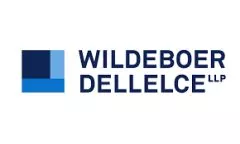The Federal Government's Fighting Against Forced Labour and Child Labour in Supply Chains Act (the "Modern Slavery Act") imposes disclosure obligations on various Canadian and Canadian-linked entities.
This legal update constitutes the third installment in our series on the Modern Slavery Act. For background information, please see our prior updates from October 2022 and September 2023.
Introduction
With the coming into force of the Modern Slavery Act on January 1, 2024, many Canadian corporations are now subject to disclosure obligations in the form of annual reporting. All public Canadian companies and reporting issuers should now clearly understand the scope of the Modern Slavery Act as well as the annual reporting requirements under the legislation.
Any entity listed on a Canadian stock exchange, doing business or holding assets in Canada and meeting the thresholds set out in our prior September 2023 update (an "Obligated Entity"), must submit and publish an annual report in compliance with the requirements set out in the Modern Slavery Act on or before May 31 of each year, with the first annual report due by May 31, 2024. Failure to do so may result in substantial penalties, including fines of $250,000 per offence along with criminal prosecution.
On December 20, 2023, Public Safety Canada published much anticipated guidance setting out the various particulars required by the annual report and clarifying aspects of the reporting requirements. This legal update briefly summarizes the annual reporting guidance and provides clarification with respect to board approval, public access and special requirements for federally incorporated entities.
Overview of Recent Guidance
Approval & Attestation
The annual report must be approved by an Obligated Entity's governing body. In the case of a joint annual report, the report must be approved by either the governing bodies of each Obligated Entity included in the report or the governing body of the Obligated Entity, if any, that controls each entity included in the report.
The approved annual report must also receive attestation using a prescribed format that sets out that the statement was approved by the appropriate governing body or bodies and is signed by one or more members of each governing body that approved the report.
Online Questionnaire
As part of the annual report submission process, Obligated Entities must also complete an online questionnaire. The questionnaire includes a series of open and closed-ended questions that address each of the requirements under the Modern Slavery Act. Obligated Entities must ensure that the answers submitted through the questionnaire are consistent with the information provided in their annual report.
Publishing the Annual Report
Obligated Entities are required to publish their submitted annual report in a prominent place on their website. A copy of the annual report will also be made publicly available by the Department of Public Safety and Emergency Preparedness in a searchable online catalogue.
Technical Requirements
The annual report must be submitted in either English or French, however, it is recommended that annual reports be submitted and made available to the public in both official languages. The annual report must be submitted in PDF format with a file size not exceeding 100MB. The annual report cannot exceed 10 pages in length if submitted in only one language or 20 pages if the annual report is provided in both official languages.
Federal Corporations
An Obligated Entity incorporated under the Canada Business Corporations Act (or any other act of Parliament) must provide the annual report to each shareholder, along with its annual financial statements.
Penalties for Non-compliance
An Obligated Entity is required to file the first annual report by May 31, 2024 to cover its previous financial year. Failure to file the annual report will attract substantial penalties including fines of $250,000 per offence and individual executives, directors and employees could face the same financial consequences and criminal prosecution. Such individuals could face liability even if the Obligated Entity has not been prosecuted or convicted.
In addition to the penalties prescribed by the Modern Slavery Act, an Obligated Entity should also note the reputational risk associated with being associated with having modern slavery in its supply chains or by being noted as failing to provide adequate disclosure under the legislation. Supply chain due diligence is therefore crucial to identifying potential areas where modern slavery or corruption could emerge. Note that the Modern Slavery Act does not require Obligated Entities to modify their existing supply chains per se, but instead requires transparency and disclosure in the form of annual reporting.
Preparation and Next Steps
Any Obligated Entity should consider a comprehensive review of corporate governance policies and existing procedures and codes to consider whether the issue of modern slavery is addressed. Obligated Entities should also consider existing policies regarding supply chain due diligence to prepare for the first annual report due on May 31, 2024.
Our team can assist with Modern Slavery Act compliance by:
(a) performing enhanced due diligence on your supply chain to
analyze potential risks;
(b) developing corporate governance policies and sustainable
processes related to compliance with the Modern Slavery Act
including assisting with the integration of such policies into a
broader environmental, social and governance (ESG) strategy;
(c) developing policies and procedures focusing on preventing
forced and child labour;
(d) providing training and education to boards and employees on the
Modern Slavery Act and the disclosure obligations;
and
(e) developing and assisting in the drafting of the annual
report.
The authors gratefully acknowledge the assistance of Leanne Stevens in the preparation of this update.
The content of this article is intended to provide a general guide to the subject matter. Specialist advice should be sought about your specific circumstances.



